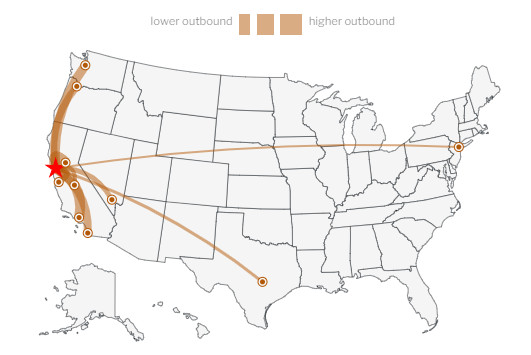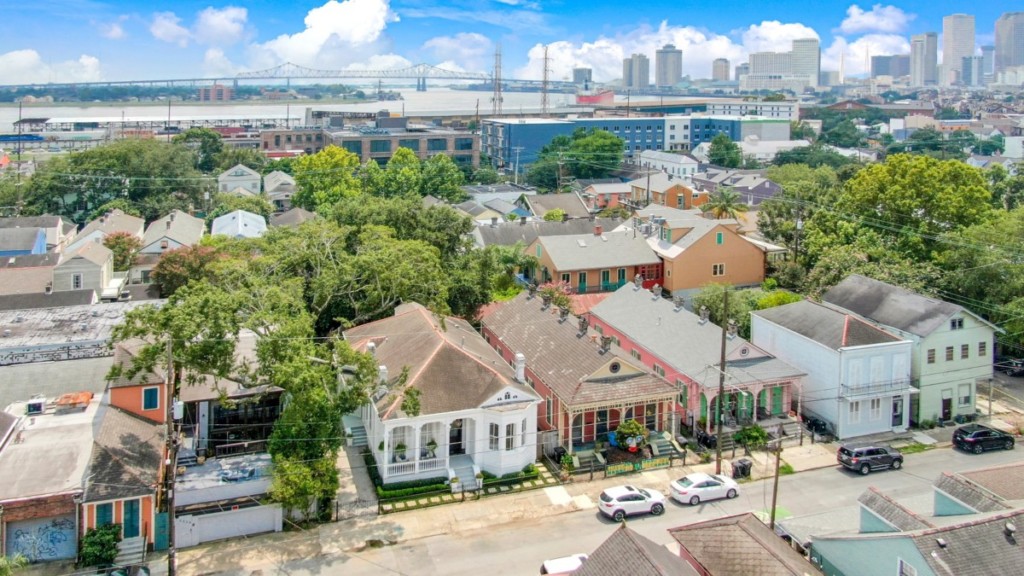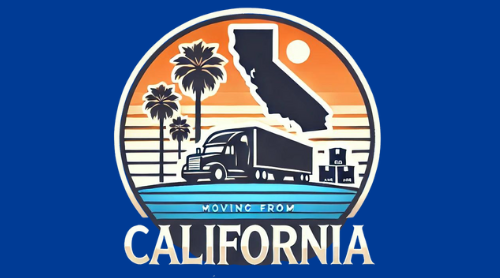Moving From San Francisco To New Orleans
Are you ready to trade in the foggy hills of San Francisco for the vibrant jazz scene and rich history of New Orleans? Moving from the City by the Bay to the Big Easy can be a thrilling adventure, but it requires careful planning and preparation. From navigating the vastly different cost of living to adapting to the unique cultural landscape, there are many factors to consider when making this significant transition. In this article, we'll provide you with the essential information and insider tips to make your move from San Francisco to New Orleans a successful one.

- Embracing a New Culture: Navigating the Move from San Francisco to New Orleans
- Is it worth moving to New Orleans?
- Where are people leaving San Francisco moving to?
- Is New Orleans cheaper than California?
- Is it affordable to live in New Orleans?
- FAQ
- What are the main differences in cost of living between San Francisco and New Orleans?
- How do the job markets in San Francisco and New Orleans compare?
- What are the differences in culture and lifestyle between San Francisco and New Orleans?
- How do the transportation options in San Francisco and New Orleans compare?
When considering a move from San Francisco to New Orleans, it's essential to be prepared for a significant change of pace and lifestyle. San Francisco, known for its tech-savvy and fast-paced environment, is a far cry from the laid-back, jazz-filled streets of New Orleans. To ensure a smooth transition, it's crucial to understand the differences between these two cities and what to expect from your new life in NOLA.
Cost of Living: A Significant Difference
One of the most notable differences between San Francisco and New Orleans is the cost of living. San Francisco is notorious for its high rent, food prices, and overall expenses. In contrast, New Orleans offers a more affordable lifestyle, with lower rent, cheaper food, and a lower overall cost of living. This can be a significant factor for individuals looking to relocate, especially those who are tired of breaking the bank in San Francisco.
| City | Median Rent (1-bedroom apartment) | Median Home Price |
|---|---|---|
| SAN FRANCISCO | $3,800 | $1.4 million |
| NEW ORLEANS | $1,400 | $240,000 |
Job Market: Opportunities Abound
While San Francisco is a hub for tech jobs, New Orleans has a thriving job market in its own right. The city is home to a growing startup scene, a strong healthcare industry, and a tourism sector that drives much of the local economy. Additionally, the city's port and shipping industry provide a wealth of job opportunities. While the job market may not be as fast-paced as San Francisco's, there are plenty of opportunities for individuals looking to start a new career or transition to a new industry.
Culture Shock: Adapting to a New Way of Life
The cultural differences between San Francisco and New Orleans cannot be overstated. San Francisco is a city that values efficiency, productivity, and a fast-paced lifestyle. In contrast, New Orleans is a city that celebrates its rich history, vibrant culture, and laid-back atmosphere. To thrive in NOLA, it's essential to be open to new experiences, willing to adapt to a slower pace of life, and eager to embrace the city's unique charm.
Neighborhoods: Finding the Right Fit
New Orleans is a city of diverse neighborhoods, each with its own unique character and charm. From the trendy boutiques and restaurants of the French Quarter to the quaint, residential streets of the Garden District, there's a neighborhood to suit every taste and lifestyle. When considering a move to NOLA, it's essential to research the different neighborhoods and find the one that best fits your needs and preferences.
Food: A Whole New World of Flavors
San Francisco is known for its diverse culinary scene, but New Orleans takes food to a whole new level. The city is famous for its Creole and Cajun cuisine, which offers a unique blend of French, Spanish, African, and Caribbean flavors. From beignets and gumbo to jambalaya and po' boys, the city's culinary scene is a sensory delight. To truly experience the city, it's essential to be open to trying new foods and drinks, and to explore the many restaurants, cafes, and food trucks that NOLA has to offer.
Is it worth moving to New Orleans?

New Orleans is a city like no other, with its unique blend of French, Spanish, and African influences. The city's rich history, vibrant culture, and stunning architecture make it an attractive destination for many. However, it's essential to weigh the pros and cons before making the decision to move to NOLA (as locals affectionately call it).
Pros of Moving to New Orleans
New Orleans offers a unique quality of life that's hard to find anywhere else. Here are some benefits to consider:
- Cultural heritage: New Orleans is steeped in history and culture. From its iconic jazz music to its mouth-watering Creole cuisine, the city is a melting pot of influences that will enrich your life.
- Vibrant nightlife: NOLA is famous for its bars, clubs, and live music venues. You'll never be bored in this city that never sleeps.
- Friendly community: New Orleanians are known for their warm hospitality. Expect to find a strong sense of community and camaraderie in this city.
Cons of Moving to New Orleans
While New Orleans has its charm, it's not without its challenges. Here are some downsides to consider:
- Hurricane risk: New Orleans is prone to hurricanes, which can be a significant concern for those who live there. The city is still recovering from the devastating effects of Hurricane Katrina in 2005.
- High crime rate: Like many urban areas, New Orleans struggles with crime. Some neighborhoods are safer than others, so it's essential to do your research before choosing a place to live.
- Traffic and parking woes: NOLA is a popular tourist destination, which means traffic and parking can be a nightmare. Be prepared for congested streets and limited parking options.
Things to Consider Before Making the Move
Before packing your bags, here are a few things to keep in mind:
- Housing costs: The cost of living in New Orleans can be relatively high, especially when it comes to housing. Be prepared to pay a premium for a desirable location.
- Job market: While NOLA has a thriving tourism industry, the job market can be competitive. Research the job market in your field before making the move.
- Healthcare and education: New Orleans has made significant strides in rebuilding its healthcare and education systems since Hurricane Katrina. However, access to quality healthcare and education can still be a challenge in some areas.
Where are people leaving San Francisco moving to?

The exodus from San Francisco has been a topic of discussion in recent years, with many residents leaving the city due to various reasons such as high cost of living, housing shortages, and changing job market. So, where are people leaving San Francisco moving to?
Top Destinations for Those Leaving San Francisco
People leaving San Francisco are flocking to cities that offer a similar quality of life, job opportunities, and a more affordable cost of living. The top destinations include:
- Austin, Texas: With its thriving tech industry, vibrant cultural scene, and a lower cost of living, Austin has become a popular destination for those leaving San Francisco.
- Seattle, Washington: Seattle's tech industry, led by Amazon and Microsoft, has created a high demand for skilled workers, making it an attractive option for those leaving San Francisco.
- Denver, Colorado: Denver's strong economy, outdoor recreation opportunities, and a relatively lower cost of living have made it a popular destination for those looking to escape the high costs of San Francisco.
Reasons for Leaving San Francisco
The reasons for leaving San Francisco are varied, but some of the most common include:
- Housing Costs: The high cost of housing in San Francisco has made it difficult for many residents to afford a place to live, leading them to seek more affordable options elsewhere.
- Traffic and Congestion: The increasing traffic and congestion in San Francisco have made commuting time-consuming and frustrating, causing some to seek more manageable cities.
- Changing Job Market: The shift towards remote work and the decline of certain industries have led to a changing job market in San Francisco, causing some to seek new opportunities in other cities.
What This Means for San Francisco
The exodus from San Francisco has significant implications for the city's economy, housing market, and community. This trend may lead to:
- A Shift in Demographics: The departure of long-time residents and the influx of new ones may change the demographics of the city, leading to a shift in cultural and community dynamics.
- Housing Market Adjustments: The decrease in demand for housing may lead to a correction in the housing market, making it more affordable for those who remain.
- New Economic Opportunities: The exit of certain industries and the entry of new ones may create new economic opportunities for San Francisco, allowing it to adapt and evolve.
Is New Orleans cheaper than California?

New Orleans, Louisiana, and California are two vastly different regions in the United States, each with their own unique characteristics, advantages, and disadvantages. When it comes to cost of living, the answer to this question is not a simple yes or no. It depends on various factors such as lifestyle, housing, transportation, and personal preferences. Here are some key aspects to consider:
Housing Costs
Housing costs are a significant factor in determining the cost of living in any region. New Orleans has a relatively lower median home price compared to California. According to Zillow, the median home value in New Orleans is around $190,000, while in California, it's around $650,000. However, it's essential to note that housing prices vary greatly depending on the location, with cities like San Francisco and Los Angeles being much more expensive than others. Here are some approximate prices for a one-bedroom apartment in different cities:
- New Orleans: $1,200 - $1,800 per month
- Los Angeles: $2,000 - $3,000 per month
- San Francisco: $3,000 - $4,500 per month
Food and Transportation Costs
Food and transportation costs can also impact the overall cost of living. New Orleans is known for its affordable food scene, with a meal at a mid-range restaurant costing around $15 - $25 per person. In contrast, California, particularly cities like San Francisco and Los Angeles, tend to have higher food prices, with a meal at a mid-range restaurant costing around $20 - $40 per person. When it comes to transportation, New Orleans has a relatively low cost of owning and maintaining a vehicle, with average gas prices around $2.50 per gallon. California, on the other hand, has some of the highest gas prices in the country, with average prices around $3.50 per gallon.
Taxes and Healthcare Costs
Taxes and healthcare costs are also important factors to consider. Louisiana, where New Orleans is located, has a relatively low state income tax rate of 4.25%, while California has a state income tax rate of up to 13.3%. Additionally, California is known for having higher healthcare costs, with the average cost of a health insurance premium being around $550 per month for an individual. In contrast, Louisiana has lower healthcare costs, with the average cost of a health insurance premium being around $350 per month for an individual. Here are some approximate costs for healthcare and taxes:
- Louisiana state income tax: 4.25%
- California state income tax: up to 13.3%
- Average health insurance premium in Louisiana: $350 per month
- Average health insurance premium in California: $550 per month
Is it affordable to live in New Orleans?

New Orleans, known for its vibrant culture, rich history, and Mardi Gras celebrations, is a popular destination for tourists and potential residents alike. However, the question remains: is it affordable to live in this iconic city? The answer depends on various factors, including lifestyle, housing choices, and personal preferences.
Housing Costs in New Orleans
When it comes to housing, New Orleans offers a range of options, from affordable apartments to luxury condos. The median rent for a one-bedroom apartment in the city is around $1,100 per month, while a three-bedroom house can cost upwards of $1,800 per month. However, prices vary greatly depending on the neighborhood, with areas like the Garden District and Uptown being more expensive than others like Mid-City and Bayou St. John.
Some affordable neighborhoods to consider:
- Bywater: A trendy neighborhood with a mix of old and new apartments, with median rent around $1,000 per month.
- Algiers: A historic neighborhood on the other side of the Mississippi River, with median rent around $900 per month.
- St. Roch: A charming neighborhood with a mix of old and new apartments, with median rent around $1,200 per month.
Food and Transportation Costs
Food and transportation costs can add up quickly, but New Orleans offers some affordable options. The city has a vibrant food scene, with many affordable restaurants and cafes serving delicious Creole and Cajun cuisine. A meal at a mid-range restaurant can cost around $15-20 per person. Groceries are also relatively affordable, with the average cost of milk, eggs, and bread being around 10% lower than the national average.
As for transportation, New Orleans has a well-connected public transit system, including buses and streetcars. A monthly pass can cost around $60, making it an affordable option for those who prefer not to drive. Ride-hailing services like Uber and Lyft are also widely available.
Other Expenses to Consider
In addition to housing, food, and transportation costs, there are other expenses to consider when living in New Orleans. Healthcare costs can be high, especially for those without insurance. However, the city has several hospitals and medical centers, including Tulane Medical Center and Ochsner Medical Center.
Other expenses to keep in mind:
- Insurance: Homeowners insurance can be high in New Orleans due to the city's flood risk, with average premiums around $2,000 per year.
- Taxes: Louisiana has a relatively low state income tax rate of 4.25%, but property taxes can be high, especially in wealthier neighborhoods.
- Entertainment: New Orleans is known for its vibrant nightlife and cultural events, which can come with a cost. Budget around $500-1,000 per month for entertainment expenses.
FAQ
What are the main differences in cost of living between San Francisco and New Orleans?
The cost of living in San Francisco is notoriously high, with exorbitant housing prices and steep taxes. In contrast, New Orleans offers a significantly lower cost of living, with affordable housing options and a more relaxed pace of life. According to data from Council for Community and Economic Research, the overall cost of living index in New Orleans is 94.3, compared to 196.2 in San Francisco. This means that New Orleans is nearly half as expensive as San Francisco. When considering a move from San Francisco to New Orleans, you can expect to save money on housing, food, and transportation, which can be a significant relief for those looking to stretch their budget further.
How do the job markets in San Francisco and New Orleans compare?
San Francisco is a hub for tech industry jobs, with many major companies headquartered in the city. New Orleans, on the other hand, has a more diverse economy, with major industries including tourism, healthcare, and education. While San Francisco has a higher median salary, New Orleans has a lower unemployment rate, with more job opportunities available in the service industry. Additionally, New Orleans is home to a growing startup scene, with many entrepreneurs and small businesses calling the city home. When moving from San Francisco to New Orleans, you may need to adjust your job expectations, but you'll find a more laid-back and community-driven work environment.
What are the differences in culture and lifestyle between San Francisco and New Orleans?
San Francisco is known for its fast-paced and competitive lifestyle, with a strong focus on career advancement and technological innovation. New Orleans, on the other hand, is famous for its vibrant cultural scene, with a rich history of jazz, blues, and Mardi Gras celebrations. The city has a more relaxed and laid-back atmosphere, with a strong emphasis on community and neighborhood ties. When moving from San Francisco to New Orleans, you can expect to trade in your hiking boots and yoga pants for jazz clubs and beignet cafes. You'll find a more diverse and eclectic community in New Orleans, with a strong sense of history and tradition.
How do the transportation options in San Francisco and New Orleans compare?
San Francisco is known for its comprehensive public transportation system, with BART, Muni, and Caltrain options available. New Orleans, on the other hand, has a more limited public transportation system, with a focus on streetcars and buses. However, the city is relatively small and walking or biking are viable options for getting around. Additionally, New Orleans has a thriving Uber and Lyft scene, making it easy to get around the city without a car. When moving from San Francisco to New Orleans, you may need to adjust to a more laid-back and pedestrian-friendly transportation system, but you'll find it easy to get around without relying on a car.
